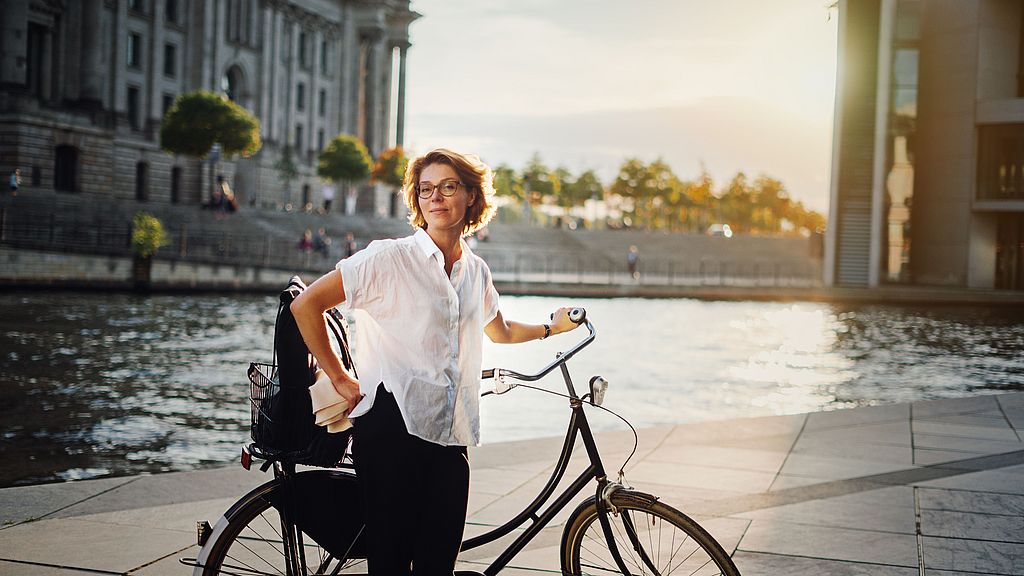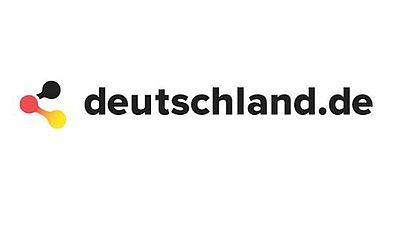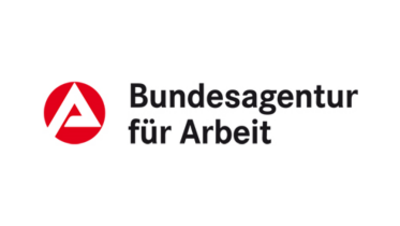
Leisure
What is life like in Germany? This section contains information on what you can do in your free time and how to meet new people in Germany.
Getting to know new people
It can be difficult to move to a new country and leave all your friends and family behind. Here are some useful tips to help you settle in quickly in Germany!
Do you like to play football, or would you like to try your hand at a new sport? Germany has a strong club culture. You are free to join any sports club and meet new people. Check out the clubs in your area – either in person or online – or just ask your new colleagues.
Those who prefer mental to physical exercise can take a course at an adult education centre . You can take courses on a wide range of topics at one of over 840 locations across Germany. Adult education centres also offer language courses – you may meet other skilled workers from abroad who are in a similar situation and are also looking for contacts in Germany. Those with a creative streak can take art classes or join a drama group or choir.
Many municipalities have their own special communities or charitable organisations that are always on the look-out for new helpers. Volunteering is a great way to meet new people while doing something good for society. Often there are also clubs dedicated to promoting intercultural exchange in a city. They organise all kinds of events where you can meet new people and improve your German. Some cities also run cultural clubs where you can meet other migrants or perhaps even people from your own culture.
But you don’t have to go very far to meet new people. In Germany, it is customary to introduce yourself to your neighbours once you have moved in. The atmosphere in the neighbourhood is more pleasant if you know each other, and you can make new contacts right on your doorstep. It may also be worth networking on the internet through groups. You can find like-minded people online who share your hobbies and interests. Many dating apps also have a feature where people can get to know each other as friends.
Recreation in Germany
It is entirely up to you to decide how to spend your free time in Germany. Whether you fancy hiking through German forests, relaxing in the park, swimming in the lake, cycling or perhaps taking short trips to other German cities: Germany has a lot to offer! Visit “Germany Travel ” to discover some exciting destinations.
Plenty of options also exist for those who prefer indoor activities. There are more than 7,000 museums across Germany, with exhibitions on technology, history and art, to name but a few. Good to know: many museums host Museum Days or the Long Night of Museums, when admission is reduced or even free. Visiting cultural institutions such as cinemas, theatres and opera houses is also very popular in Germany; they can be found in both large and small cities.
Information about special local events, such as guided tours, street festivals or concerts, is also available online in many cities. In addition, there are often weekend flea markets where people sell second-hand clothes, furniture, bicycles, games and other items for little money.

Dining
Germany offers a wide range of dining options in the big cities, as well as in rural areas. In a Brauhaus, you can try typical German dishes such as spaetzle, potato pancakes or escalope. International cuisine is also very popular in Germany, enabling you to either find dishes from your home country or try something new. Major cities also offer a wide range of vegetarian restaurants and fusion cuisine.
But eating out does not always mean going to an expensive restaurant, as Germany has a vibrant takeaway culture! From traditional French fries to the iconic currywurst, there is something to suit all tastes. Another way to eat out at a reasonable price in Germany is the lunchtime special (Mittagstisch). Many restaurants offer great deals for lunch between noon and 2 pm. Good to know: Although tipping is voluntary in Germany, it is usually expected in the hospitality industry. It is customary to tip between five and ten per cent.
Bakeries in Germany are also a popular alternative for a lunchtime snack or a quick bite to go. They offer both sweet (e.g. doughnuts, cakes, croissants) and savoury options (e.g. filled rolls, bacon sticks). The bakeries also have a wide range of breads and rolls to choose from.
Advisory services
There are many advisory services in Germany that can help you in different situations.
By calling the “Working and Living in Germany” hotline (Tel. +49 [0] 30 1815 1111), you can get individual advice in German or English on topics such as visas and the recognition of foreign qualifications.
Germany’s many regional Welcome Centres will help you every step of the way when immigrating to this country.
The IQ networks provide advice on the recognition of professional qualifications or professional development options. You will find a map showing all the IQ Advice Centres here .
Regional Chambers of Industry and Commerce and Chambers of Crafts also often offer advice on recognition, integration and professional development. Information about these and other advice services for your city is available on the internet.
You can find a list of websites offering advice and information here.
- Faire Integration: You can find out all you need to know about your rights as an employee in Germany from the “Integration through Qualification” (IQ) funding programme on their website about integration in Germany.
- Antidiskriminierungsstelle: Have you experienced discrimination or sexual harassment? You can find advice and support here.
- BAMF-NAvI: Find contact points such as migration counselling centres, authorities and integration courses in your area.
- mbeon: The Migration Advice Service for Adult Immigrants (MBE) app – use the chat function for advice.
- IQ Netzwerk: Use the Network IQ to find competent bodies that can advise you on recognition, qualifications and setting up your own business.
Pre-integration and Welcome Coaches
Goethe-Instituts offer pre-integration courses in a number of countries. The aim of these courses is to prepare participants for everyday life in Germany and to provide them with the best possible support. Training sessions are tailored to specific target groups and address regional and intercultural issues. Depending on your situation, you can attend seminars, get face-to-face advice or seek guidance online. For more information and a list of locations where pre-integration programmes are held, click here .
In addition to pre-integration, Welcome Coaches also offer support during the process of immigrating to Germany. The Goethe-Institut’s Welcome Coaches also offer free events in Germany, both in person and online. As well as the opportunity to learn German, you will also receive support with many of the important issues you will face when you arrive in Germany. You can register free of charge here . The Welcome Coaches look forward to meeting you at the Goethe-Instituts and the Infohäuser .
Although many people in Germany speak good English, it is important to learn German as well. This will help you integrate and communicate with the authorities. The “Learning German” section contains information on German language requirements and German and integration courses.
Information on the web
- Goethe-Institut Pre-integration
- Integration through Qualification (IQ) IQ advisory services for individuals with foreign qualifications in Germany
Do you have any questions?
Let us advise you on your opportunities to work and live in Germany. Our experts will support you with questions regarding job search, visa, recognition and learning German.
You can find out more about the various contact options by clicking on one of the icons in the bar below.



